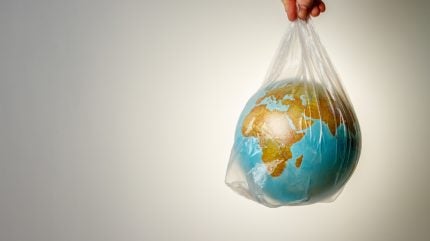
The Global Plastic Action Partnership (GPAP) has reached a significant milestone, expanding its impact-driven network to 25 countries. With the recent addition of Angola, Bangladesh, Gabon, Guatemala, Kenya, Senegal, and Tanzania, GPAP now influences over 1.5 billion people worldwide.
This makes it the largest global initiative dedicated to combating plastic pollution through systemic waste management solutions and circular economy principles.

Discover B2B Marketing That Performs
Combine business intelligence and editorial excellence to reach engaged professionals across 36 leading media platforms.
This expansion strengthens efforts to drive sustainable materials innovation, enhance recycling infrastructure, and curb greenhouse gas emissions. Central to GPAP’s strategy are National Action Roadmaps—country-specific frameworks designed to foster sustainable practices, backed by a global knowledge-sharing network.
To date, these initiatives have attracted $3.1 billion in investments, created safer jobs for informal waste workers, and contributed to measurable progress in climate resilience and sustainability.
Advancing circularity to reduce emissions
Plastic waste is not just an environmental issue; it is also a major contributor to climate change. The plastics sector is responsible for an estimated 1.8 billion tonnes of greenhouse gas emissions annually.
A significant portion of this comes from landfill methane emissions, which are over 80 times more potent than CO₂ in the short term. By promoting circular systems, GPAP seeks to cut emissions while fostering economic growth through green job creation.

US Tariffs are shifting - will you react or anticipate?
Don’t let policy changes catch you off guard. Stay proactive with real-time data and expert analysis.
By GlobalDataIndustry experts estimate that circular solutions could generate up to six million jobs globally by 2030, with the plastics sector playing a crucial role in this transition. Through strategic partnerships and tailored national initiatives, GPAP aims to transform plastic waste from an environmental burden into a valuable resource that fuels sustainable economies.
The road ahead for a plastic-free future
The urgency to address plastic pollution is greater than ever, with over six million tonnes entering the oceans each year and an even larger amount polluting land. These mismanaged plastics disrupt ecosystems, endanger biodiversity, and threaten human health.
By uniting 25 nations under a common framework, GPAP is accelerating collaborative action to halt plastic leakage, shift towards sustainable materials, and protect both natural environments and livelihoods.
Moving forward, the partnership will continue to bring countries and stakeholders together to build a circular plastics economy, ensuring that waste materials are reintegrated into production cycles rather than polluting the planet.
As GPAP continues to expand, its efforts underscore a global commitment to rethinking how plastics are produced, managed, and reused—laying the foundation for a sustainable and resilient future.





